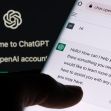Why did the robot become a lawyer? Because it was programmed to object to everything! And that, my friends, is a joke created by Artificial intelligence.
All kidding aside, Artificial Intelligence (AI) is already disrupting numerous industries and is expected to revolutionize the legal profession. The use of AI is already the norm in most law firms and legal departments, which at the most basic level use AI daily to significantly improve efficiency, streamline legal research, and reduce costs.
Consider how much faster it is today for you to Google precedents in cases that apply to your case, as compared to attorneys only a dozen years ago, who had to pore over thick volumes of court decisions located in books. When was the last time you used one of those legal tomes?
Obviously, human labor is more expensive than Artificial Intelligence. Based purely on a cost basis, AI wins out every time, when compared to human attorneys, who are paid a salary and benefits.
But beyond the cost savings and the increasing use of AI in the legal profession, what is the potential impact on the job market for lawyers? Will the 1,327,910 attorneys working today dwindle down to smaller numbers? How will flesh-and-blood lawyers impact the outcome of their cases, by going above and beyond pure law, and creating powerful and emotional responses in the courtroom? Will judges become AI, and what about the juries?
From the bottom line to the human perspective, there are overwhelming legal implications of the growing trend of using AI in the legal profession.
Consider document reviews. Right now, one of the most time and cost-efficient uses of AI in the legal profession is document review. Using algorithms, AI systems quickly analyze significant volumes of legal documents. This AI document review is especially successful in dealing with contracts and can save attorneys hours of labor plus drastically lower the risk of mistakes.
Legal research is time-consuming, for human attorneys. But for AI, it’s just another high-powered search. By analyzing vast amounts of legal data, AI algorithms can identify relevant cases and statutes quickly and efficiently, usually in minutes.
AI is now being used to draft initial contracts, write legal analyses, and even formulate litigation strategies, but all used as basic information for attorneys to use to create final documents. Some law firms are now trying out using AI chatbots to offer mostly basic legal advice to clients.
Meet Harvey, a legal startup AI platform currently being used by attorneys. The company says it is a “generative A.I. for elite law firms.” It is now being used by approximately 3,500 attorneys in the 43 offices of Allen & Overy, the seventh-largest law firm in the world. Harvey is described as being able to help lawyers with litigation, compliance, and due diligence.
If you’re one of those 1,327,910 attorneys working today, you’ve got to be wondering: will you be replaced with AI? As of today, the answer is no. However, AI is exponentially advancing in its technology, meaning these first systems used today will evolve into more sophisticated models that will probably replace attorneys in many functions. When this happens, which may be in 5-10 years, expect law firms to reduce their staff dramatically and replace human attorneys with AI.
However, especially in the legal industry, expect a fight by hundreds of thousands of attorneys to keep their jobs when the AI ax falls. Here’s why.
AI systems can be biased. Since these systems are only as good - or objective - as the human beings who programmed them - it stands to reason that there is a potential for any AI to be biased. This logically means that an AI system programmed by a biased programmer would be biased, which could violate numerous constitutional and other rights of defendants. A case can - and will - be made by attorneys facing unemployment due to AI that defendants in the US are guaranteed a fair and non-discriminatory trial.
As seen by journalists and others experimenting with Chat AI today, systems can make mistakes. No system is infallible. And, if AI makes errors, it could have very serious implications for defendants and/or plaintiffs.
Here are a few examples of AI vs. human attorneys, and how they may impact the results in cases.
1. Sentencing: Some cases show that AI may be more accurate than human judges, especially in predicting the likelihood of recidivism or the appropriate sentence for a specific crime. For example, a 2018 study by researchers at Dartmouth College reports that an AI algorithm was more accurate compared to human judges in predicting which defendants would re-offend within two years.
2. Contract analysis: It is a given that AI can be used to analyze large volumes of legal contracts and share the potential risks or issues in each contract. But the advantage of the AI in this scenario is that the system will instantly identify a clause in a contract that is no longer applicable based on new laws. A human lawyer may miss this point.
3. Patent law: AI is used to analyze very large volumes of patent applications for cases. This can expose potential patent infringements that human lawyers might not find.
4. AI makes errors: Here are a few instances where AI made major errors in cases.
- United States v. Jones (2014): The FBI used a GPS tracking device to monitor the movements of a suspect's vehicle without a warrant. But the Supreme Court ruled that the use of the GPS device was unconstitutional. In the Supreme Court decision, the necessity for human oversight was recommended input in the use of surveillance technology.
- State v. Loomis (2016): In this case, a Wisconsin court used a proprietary software program, COMPAS, to assess the risk of recidivism for a defendant. During the trial, the defendant argued that the use of this recidivism software violated his due process rights because the algorithm was not transparent and he could not challenge the accuracy of the AI results. The court ruled against the defendant, but this case highlights a broader danger of AI being used in the criminal justice system.
- Doe v. Google (2018): Former Google executives sued the company for wrongful termination, alleging Google’s confidentiality policies restricted their employees’ speech in violation of California law. They claimed that they were fired for expressing conservative views. Google's internal investigation was done by using an AI-powered tool that flagged emails containing certain keywords. The plaintiffs argued that this tool was biased against conservative viewpoints and had led to wrongful termination. They claimed their rights were violated by restraints of competition, whistleblowing, and freedom of speech. The case was dismissed but later appealed.
- Carpenter v. United States (2018): The Supreme Court ruled that the government must obtain a warrant before accessing an individual's historical cell phone location data. This decision recognizes the need for privacy protections, especially in the age of digital surveillance. It also notes the potential risks of AI-powered surveillance technologies.
5. Ethics and human judgment: Human lawyers win on this front, again and again. Unless AI becomes sentient, which it may one day, these systems will not be able to include ethical considerations and judgment in their cases.
AI is not human; it can scan millions of contracts in an hour, but it cannot inject that human element into a successful court argument that just might sway a judge or jury…at least for now.






